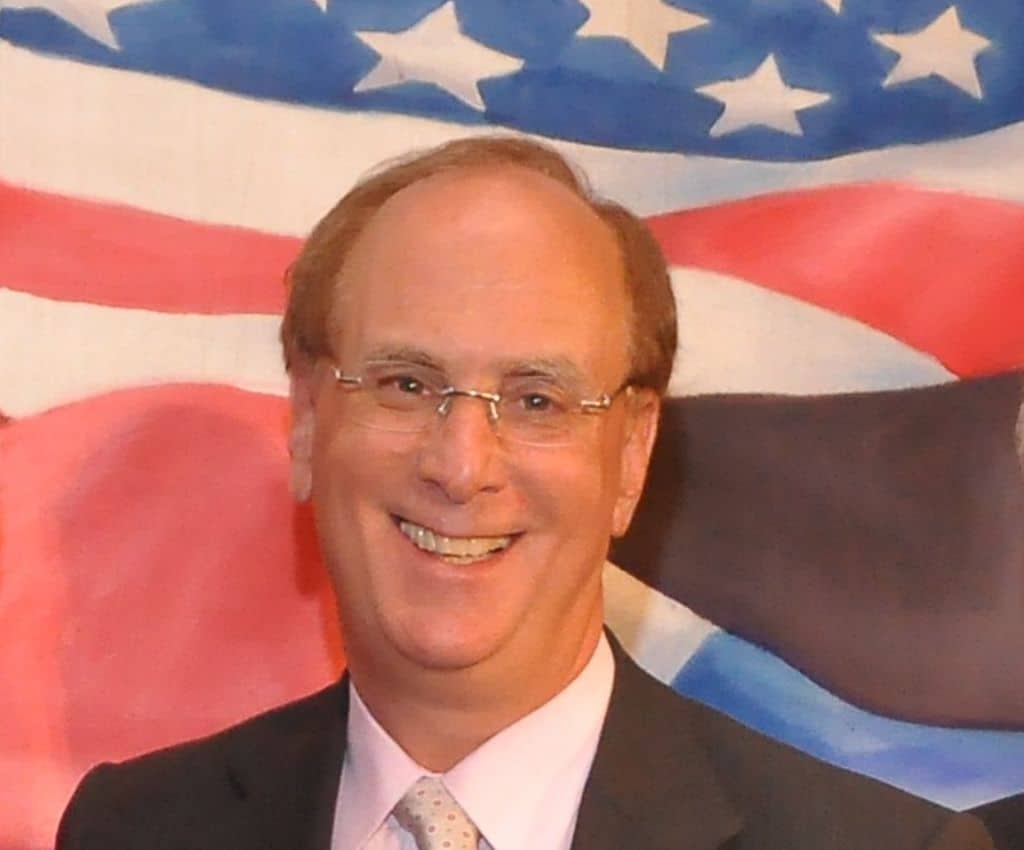Larry Fink: Is The BlackRock CEO Jewish? Facts & Background
Is Laurence "Larry" Douglas Fink, the titan of global finance and the chairman and CEO of BlackRock, a man of Jewish faith and heritage? The answer is unequivocally yes, a fact woven into the fabric of his upbringing, personal values, and, to some extent, his professional journey.
Born on November 2, 1952, in Van Nuys, California, Fink's life began in a Jewish family. His roots, stretching back to Eastern Europe, shaped his early experiences and instilled in him a set of principles that would guide him throughout his career. Raised alongside two siblings, Fink's childhood was marked by the values of hard work and education, as emphasized by his parents. His mother, Lila, was an English professor, and his father, Frederick, owned a shoe store. These formative years laid the groundwork for his future endeavors.
| Category | Details |
|---|---|
| Full Name | Laurence Douglas Fink |
| Date of Birth | November 2, 1952 |
| Place of Birth | Van Nuys, Los Angeles, California, USA |
| Parents | Frederick Fink (father, shoe store owner), Lila Fink (mother, English professor) |
| Education | B.A. in Political Science, UCLA (1974) |
| Profession | Chairman and CEO, BlackRock |
| Known For | Leading the world's largest asset management firm; influential voice in global finance and corporate governance. |
| Jewish Heritage | Yes |
| Religious Affiliation | Jewish |
| Additional Information | Former member of Kappa Beta Phi. |
| Reference | BlackRock Official Website - Leadership |
Fink's journey through academia saw him earn a Bachelor of Arts degree in political science from UCLA in 1974. The pursuit of knowledge and understanding of the world around him was clearly a driving force, leading him to this foundational academic path. However, it was perhaps the lessons learned outside the classroom, within his family and community, that truly shaped his character.
Throughout his career, Fink has navigated the complexities of a diverse, globalized world. He has built and led an organization, BlackRock, which operates across cultures, religions, and ideologies. This global context has created a platform for extraordinary leadership, requiring a delicate balance between personal beliefs and the demands of the business world. Fink himself underscores universal ethical principles, focusing on shared values rather than overtly privileging religious expression. This approach naturally raises the question of how he integrates his personal faith with his professional responsibilities.
The influence of his Jewish heritage is undeniable. The values instilled in him from a young agehard work, education, and perseveranceare deeply resonant within Jewish tradition. The emphasis on community, social responsibility, and intellectual inquiry are all hallmarks of his upbringing. Many of his team members at BlackRock are Jewish, leading some to affectionately refer to his desk area as "Little Israel," a testament to the shared background and camaraderie within the firm.
Fink's upbringing in the 1950s and 60s, a time when anti-Semitism, though not always overt, still existed in certain social circles, certainly shaped his worldview. While the 1970s and 1980s presented a challenging environment in some sectors, the values he learned at home remained constant. He clearly learned the lesson of embracing those who had been excluded and striving for a world that included everyone. This is demonstrated through the principles that would guide his professional journey.
His commitment to those principles is evident in his leadership style. His ambition and vision have made him a prominent figure, but also a focal point for scrutiny and discussion. The rise of BlackRock, from a small firm to a global financial powerhouse, is a testament to his ambition, foresight, and the intricate interplay between finance, governance, and global policy. The firms influence extends to the global stage, making Fink a central figure in discussions about corporate governance, sustainability, and the future of finance.
However, Fink's views and actions have not been without controversy. His outspoken support for certain policies and his role in managing significant assets have drawn criticism from various groups. Some activists, for instance, have called on him to align his actions more closely with his Jewish values, specifically regarding the funding of fossil fuel industries. The International Movement for a Just World (JUST), and other organizations, have raised concerns about his involvement in certain financial decisions, urging him to consider the ethical implications of BlackRocks investments.
The question of how Fink balances his personal faith with the demands of a highly diverse and secular business world remains a significant aspect of his story. He has repeatedly emphasized the importance of universal ethical principles, suggesting a deliberate effort to create an inclusive environment that respects all perspectives. This approach to leadership, while effective in many ways, also opens him up to criticism, particularly from those who believe his personal beliefs should be more visibly integrated into his professional decision-making.
Despite the successes, there have been challenges, including the financial crisis of 2008 and more recent economic uncertainties. Through these periods, Fink has demonstrated resilience and a capacity for learning, illustrating that failure is not the end, but a springboard to future endeavors. His ability to navigate complex global issues, coupled with his financial acumen, has solidified his position as a leader, with a net worth estimated at $1.2 billion in April 2024. The Jewish community, while diverse itself, shares a history, culture, and set of beliefs.
In conclusion, Larry Fink's Jewish heritage is a core component of his identity. His values, influenced by his upbringing, continue to shape his leadership style. While he leads BlackRock, a company with global reach, he seems committed to universal ethical principles. This approach highlights the nuances of his position. It is a story of ambition, faith, and the constant negotiation between personal beliefs and the demands of the global business landscape. He shows how an individual can find success while staying true to ones roots.


